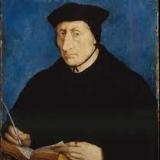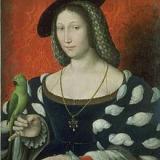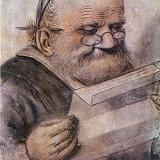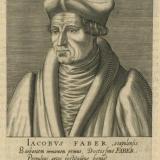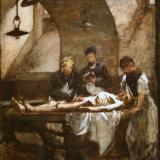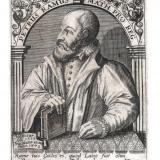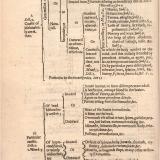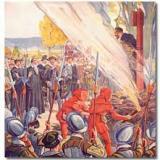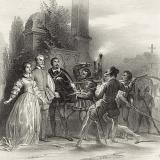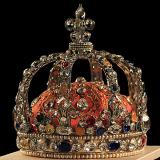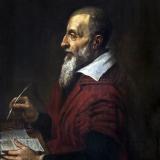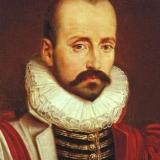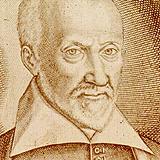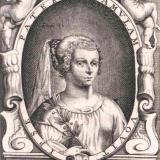Renaissance and Reformation in France
In this third season on philosophy in the 15-16th centuries, we turn to France, beginning with the blossoming of humanism under King Francis I, and involving among others his sister Marguerite de Navarre and authors who won her favor, including Rabelais, the author of the outrageously satirical Pantagruel. In these figures we see the stirrings of sympathy for the Reformation, which erupts into full confrontation with the Huguenots: their stance provokes questions about the ethics of resistance to political tyranny. In the meantime, in the orbit of the universities medicine and other sciences are pursued, and a new approach to organizing knowledge is proposed by Peter Ramus and his students. We will also look at Montaigne and his adoptive daughter Marie de Gourney, one of several to contribute to the long-running question of gender equality. The season ends with a look at skepticism (probably).
Look out for interviews with Rosa Antognazza, Ann Blair, Robert Goulding, and Henrik Lagerlund!
• P. Benedict et al. (eds), Reformation, Revolt and Civil War in France and the Netherlands, 1555–1585 (Amsterdam: 1999).
• D.M. Clarke, French Philosophy, 1572-1675 (Oxford: 2016).
• N.Z. Davis, Society and Culture in Early Modern France: Eight Essays (Stanford: 1975).
• J. Farge, Orthodoxy and Reform in Early Reformation France (Leiden: 1985).
• J. Garrison, A History of Sixteenth-Century France, 1483-1598: Renaissance, Reformation and Rebellion (1995).
• M.P. Holt, Renaissance and Reformation France (Oxford: 2002).
• A.H.T. Levi (ed.), Humanism in France at the End of the Middle Ages and the Early Renaissance (New York: 1970).
• J.H.M. Salmon, Society in Crisis: France in the Sixteenth Century (New York: 1975).
• F. Simone, The French Renaissance, trans. H.G. Hall (London: 1969).
• D. Stone Jr, France in the Sixteenth Century: A Medieval Society Transformed (Englewood Cliffs: 1969).
Posted on
We begin to look at philosophy in Renaissance France, beginning with humanists like Budé and the use of classical philosophy by poets du Bellay and Ronsard.
Posted on
A Renaissance queen supports philosophical humanism and produces literary works on spirituality, love, and the soul.
Posted on
In his outrageous novel about the giants Pantagruel and Gargantua, Rabelais engages with scholasticism, humanism, medicine, the reformation, and the querelle des femmes.
Posted on
Peter celebrates reaching 400 episodes together with the hosts of three great philosophy podcasts: Elucidations, Hi-Phi Nation, and the Unmute Podcast (Matt Teichman, Barry Lam, and Myisha Cherry).
Posted on
Jacques Lefèvre d’Étaples and Julius Caesar Scaliger fuse Aristotelianism with humanism to address problems in logic and literary aesthetics.
Posted on
Challenges to Galenic medical orthodoxy from natural philosophy: Jean Fernel with his idea of the human’s “total substance,” and the Paracelsans.
Posted on
Peter Ramus scandalizes his critics, and thrills his students and admirers, by proposing a new and simpler approach to philosophy.
Posted on
A chat with Ramus expert Robert Goulding on the role of mathematics in Ramist philosophy, not to mention some juicy academic quarrels in Paris.
Posted on
The methods of Peter Ramus sweep across Europe, winning adherents and facing stiff opposition in equal measure.
Posted on
Even as wars of religion in France prompt calls for toleration, hardly anyone makes a principled case for freedom of conscience… apart from Sebastian Castellio.
Posted on
An interview on the nature of religious tolerance, and the forms it took during the Reformation and in the thought of early modern thinkers like Locke and Leibniz.
Maria Rosa Antognazza is Professor of Philosophy at King's College London.
Posted on
Protestant French thinkers like François Hotman and Theodore Beza propose a radical political philosophy: the king rules at the pleasure of his subjects.
Posted on
The polymath Jean Bodin produces a pioneering theory of political sovereignty along the way to defending the absolute power of the French king.
Posted on
A chat with Ann Blair about the "Theater of Nature" by Jean Bodin, and other encyclopedic works of natural philosophy. (Pictured: Prof Blair holding the annotated copy of Bodin's Theatrum she describes in the episode.)
Posted on
Joseph Scaliger, Isaac Casaubon, and Guillaume du Vair grapple with history and the events of their own day.
Posted on
In his Essays Montaigne uses wit, insight, and humanist training to tackle his favorite subject: Montaigne.
Posted on
The sources and scope of the skepticism of Montaigne, Charron (pictured), and Sanches.
Posted on
No doubt that we're in good hands with interview guest Henrik Lagerlund, who brings his expertise in the history of skepticism to bear on the French Renaissance. Including a look ahead to Descartes!
Posted on
Marie le Jars de Gourney, the “adoptive daughter” of Montaigne, lays claim to his legacy and argues for the equality of the sexes.




